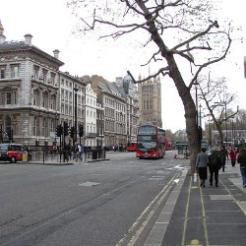Up to 400 civil society projects could be axed as a result of changes to the way voluntary projects are funded in London, according to claims by the union Unite.
The London Councils Grants Committee has just ended a review of its £28m London Boroughs Grants Scheme which presently funds around 400 projects around the capital. The current situation involves individual councils putting money into the scheme, but the review considered whether it would be best for councils to retain and spend the money locally.
But Unite has warned that if such a change goes ahead, the impact on the capital’s not for profit sector could be disastrous. Unite officer Doug Nicholls warned that the transfer of management of the grants scheme, without ring fencing for any specific projects, could mean that funding will be cut off for recipient projects by 31 March next year.
“With the Comprehensive Spending Review having created a hole of about £1.5bn for local authorities, you can see they will be tempted to claim back any penny from anywhere. But this will only lead to the further fragmentation of essential services in London. It will not be cost-effective,” he said.
“To retreat from this would be to retreat into a callous, chaotic postcode lottery and to abandon some of the most cost-effective support services for our capital.”
Chair of London Councils Grants Committee, Mayor Sir Steve Bullock, said that the review of the scheme has been prompted by the difficult economic climate councils are now facing.
“Circumstances are very different now to when the programme was last reviewed five years ago. In the light of these tough economic times, many boroughs feel that they are in a better place to decide how the money should be spent locally, especially as this will vary from borough to borough. We are reviewing the grants scheme to make sure that the money is used in the most effective way for voluntary groups and boroughs alike,” he said.
“Among the things we are looking at is whether a pan-London grants scheme is the best way of spending the money, or whether it would be more beneficial for the money to be spent locally by one or more boroughs in a region.”
A spokeswoman for London Councils told Civil Society that there are yet no decisions made on the future of the grants scheme, but that it will likely be decided upon at its Leaders Committee meeting in mid-December.
Hundreds of London projects at risk by funding changes, says union
12 Nov 2010
News
Up to 400 civil society projects could be axed as a result of changes to the way voluntary projects are funded in London, according to claims by the union Unite.








